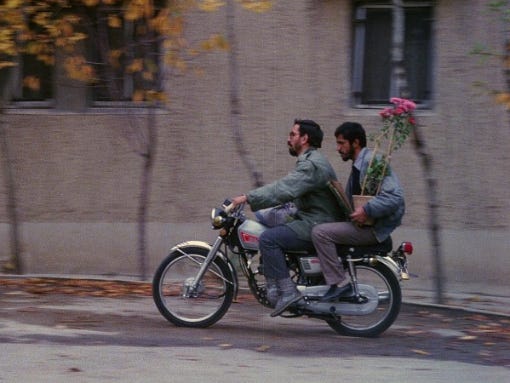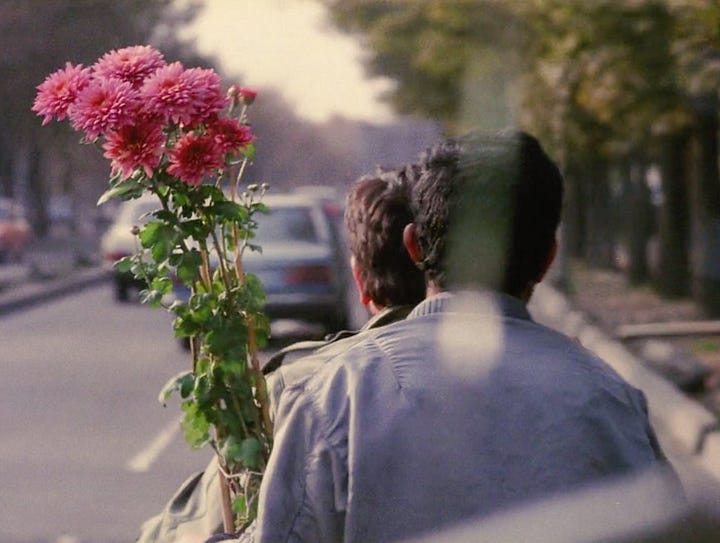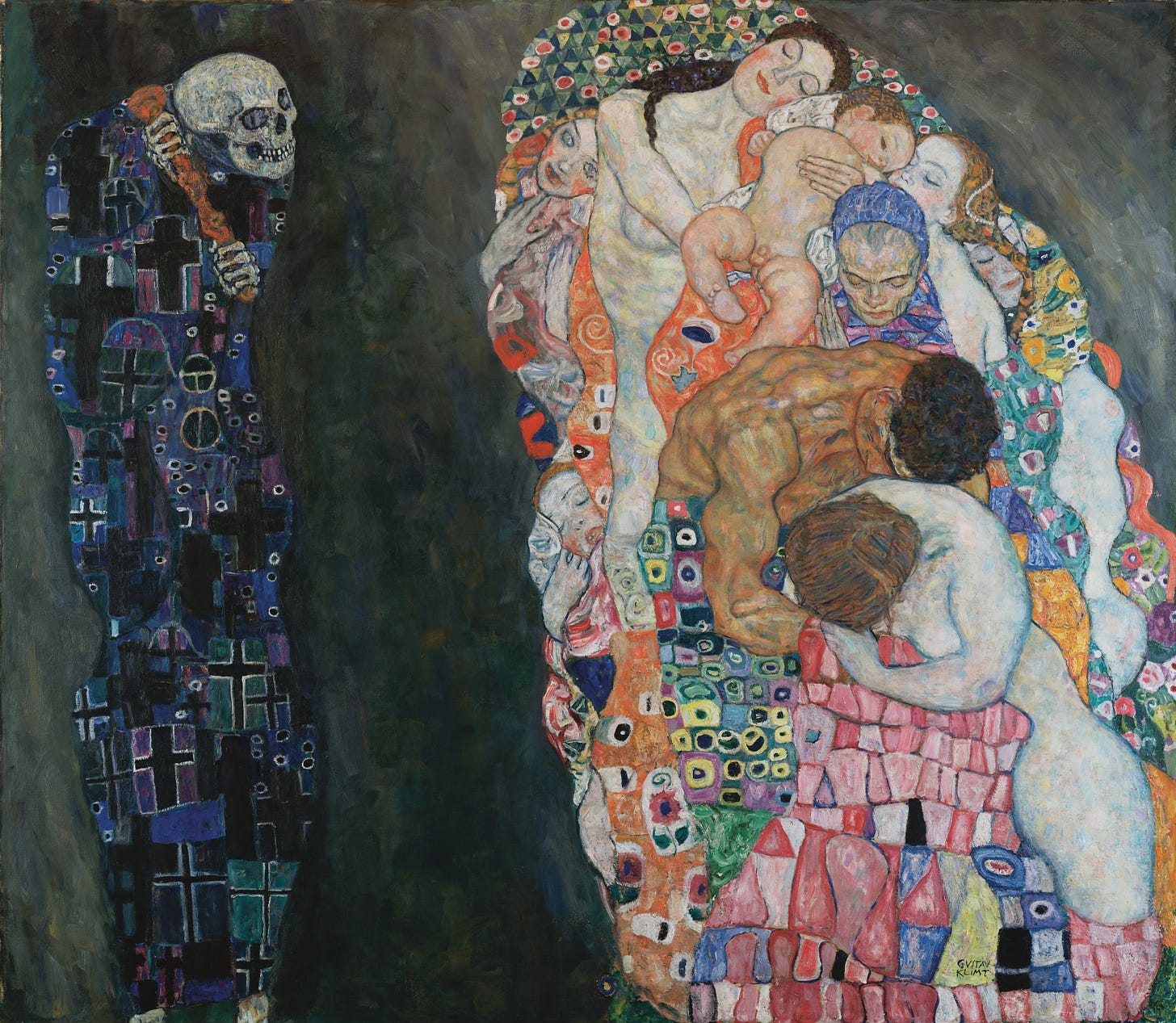Life Is Always Incomplete
we are born and we die in the middle of things
Dear Readers, I haven’t been posting on Sunday for a long, long time, as I used to do. I wanted to get back in the swing of writing essays again and other types of articles/posts in addition to my Friday posts, and I really enjoyed writing this. I hope you enjoy reading!
—
A double bind: I hate deadlines, and yet I need them more than a fish needs water, more than my mother needs to check on her roses, more than Cathy and Heathcliff need each other. I work badly under pressure, but without pressure, I work not at all. Structure pens me in, limits me, chafes me, rubs me raw, and yet without it I fear that the whole mass of my life would go sprawling and rolling and unravelling like marbles spilling out of a jar—that is to say, like myself losing my marbles. At least when you have a deadline, you can plan and prepare (or pretend to plan and prepare), have all your ducks in a row, make sure everything is neat and tidy and in order.
Death is a deadline, but it is of quite a different nature. Its date is unknown and unfixed. It cannot be prepared for. It does not come with extensions. Even if it is preceded by a long period of illness, even if the doctor tells us we have such-and-such amount of time left to live, the doctor is no prophet, and nobody really knows except God or the Fates, those three goddesses who spin, measure, and cut, passing their one eye between them, sharpening their scissors, hovering their blade over this string or that, until the final snip severs us at last from the fabric of this world.
Now, when the year turns the bend into October country, I get an unimpeded view into the distance and begin to make out the landmarks of Halloween, Thanksgiving, Christmas, I see the road approaching the state line that is New Year’s, I start to fear that the miles devoured under my wheels are going by too, too quickly, and my knuckles whiten on the steering wheel. A few years ago (now that I, through a rather convoluted Google search, have finally found it, it turns out that it was already almost four [!!] years ago), on New Year’s Eve, I read an article in The New Yorker arguing that we should “cancel” New Year’s Eve and make our acknowledgement of the Earth’s passage around the sun cursory and clerical. “Time is not only passing. Time is running out,” the article ended.1 I of almost four years ago was struck with an inward terror, and those lines still echo in my head like a great ominous gong pealing out to eternity.
New Year’s Eve, 2020, my father was still alive; New Year’s Eve, 2021, my father was still alive; New Year’s Eve, 2022, my father was still alive; New Year’s Eve, 2023, my father was still alive; New Year’s Eve, 2024, my father will not watch the ball drop in Times Square with us on TV, nor will he partake in our yearly tradition of mango mousse cake, which we always used to pick up together from the little Greek bakery that made it, and whose bright, cheerful hue always seemed to betoken bright, cheerful things in the coming year. He will never again read any more New Yorker articles, about New Year’s Eve or otherwise.
I cannot reconcile myself to the suddenness of his death, nor to the finality of death in general. It has snagged in the web of my thoughts like a thorn. I put a finger to it; I touch it haltingly. I pace around it like someone in a fairytale cursed to roam in circles. Indeed, lines of Shakespeare come out at me unbidden, half-formed, disembodied, divested of their contexts, and circle around my mind like a parade of ghosts: He should have died hereafter… Thou know’st ’ tis common… What a piece of work is a man… Life’s but a walking shadow… Passing through nature to eternity…2
“Death” is a word we say often; flowers die, batteries die, I “died” when I saw my favorite living poet in the flesh. But what is death? The cessation of breathing, the non-functioning of bodily organs, a lack of sense and thought and feeling… but what then? And what, then, is life? And is there really such a thing as the soul, and does it truly live forever? What is the nature of it? At the funeral, the priest spoke of the sixteen kingdoms, the birds with the iron beaks, the city of sand dunes. He said that each person’s soul is as big as the palm of their hand—meaning that my soul must be diminutive indeed—and that after death the soul divides into two, one soul going to join one’s ancestors, the other soul slouching towards Yama to be reborn.3 After this I realized that nobody knows anything. Religion is just people making stuff up, with greater or lesser degrees of persuasion.
I have long held the illusion that, somehow or another, before death, I would be able to straighten everything out, tie everything up with a bow. All the books I ever wanted to read would lie shut up and peaceful at last, no longer clamoring for my attention. All the movies I wanted to watch, all the recipes I wanted to try, all the outfits I wanted to wear, all the places I wanted to travel to—all the boxes would be checked, or at least all the ones that truly mattered to me. It goes without saying that I would have produced a handful of glittering novels, original in thought, perfect in form, witty in dialogue, beautiful in style, nuanced but readable, deep but entertaining, critically lauded but commercially appealing, utterly memorable, as well as a bushel or two of immortal poems and a couple of flesh-and-blood successors. Most important of all, I would have erased every embarrassing first draft of a poem from my computer and hard drives. Then I would close my eyes, and the brief candle of my life would out itself quite tranquilly.4
The typical advice is to live every day as though it might be your last, carpe the heck out of the diem and “gather ye rosebuds while ye may.”5 But in that case, my to-do list would more than compass the entire circumference of this Earth, and that dies would have to be very, very, very long indeed. Moreover, what about the many things we are obligated to do on a regular basis but cannot profess much fondness for? If death were imminent, laundry and dishes would be the first things I’d jettison, but since I don’t believe it to be imminent, I must plough on and feel that I am doing something at least somewhat worthwhile while I am at it.


A few days ago, I went to a series of talks on the topic of longevity. From the elixir of immortality to the Fountain of Youth to the drinking of mercury, human beings have sought to prolong life and keep the Reaper at bay. Now we seem to have brought the search to the realm of science, where it has donned a lab coat and a certain facticity. Many sensible things were said about diet and exercise, sleep and sunlight, stress-reduction and the importance of human connection. Centenarians gave their opinions on what they personally had done to extend their lifespans, consciously or not, and how they were continuing to make each day meaningful and beautiful. Their withered faces beamed with an inward sunlight.
Hearing such advice was very comforting. The night before, thinking about my father, I had a sudden strange feeling that death was really final, that nothing, no consciousness, no soul, no afterlife attended it, that our lives really are as fragile as the puffball of a dandelion scattered upon the wind, that the clock could not be turned back and the awful event undone. Usually a curtain covered the void, but now it gaped like the flap of skin over a bloodred wound. I swayed at the edge of the abyss, nauseous, refusing to look down. Was there really—nothing? Nothing at all? Who could imagine nothing, no-thing, nonbeing, nonexistence, null, zero, naught, none, nil?
In The Sense of an Ending, Frank Kermode tells us that we are always “men in the middest,” that we are born in the middle of things and die in the middle of things, and our attempts to fashion some kind of coherent beginning and ending for ourselves and each other are fictions, little better than the work of poets. On the wall directly across from my bed, I have a “LIFE CALENDAR” that stares at me perpetually and accusatorially—it contains a box for every week of one’s life from birth till the age of 90. The idea is to cross out a box after you have come to the end of a week; as you see the row of 52 boxes that make up a year dwindle, you are supposed to be instilled with terror. I had bought the calendar to stave off procrastination, to goad the donkey of myself into vigorous labor, but the blank expanse stretching from my current box to the box that marked the end of my 89th year seemed vast, fathomless, and unaccountable. My grandfather lay beyond the calendar, continuing to be allotted extra boxes; my father had filled little more than two-thirds. The calendar presumed beginning and end, many beginnings and ends boxed neatly into a big box that began in one corner and ended in another. But for many of us, there will be no denouement, no ritardando.
Death is not so much an end as it is an interruption. This is because living is not a past tense but a present progressive. It is motion, flow, energy, a continual unfolding, a pulse and a rhythm. Let us not aspire to be done, then, but ever happily, meaningfully, consciously, immensely doing, so busy dancing we don’t notice when the music stops.
Turns out the author, The Real Sarah Miller, is on Substack!
From Macbeth (with “he” instead of “she”), Hamlet, Hamlet, Macbeth, and Hamlet.
See the Garuda Purana.
Macbeth: “Out, out, brief candle!”
From “To the Virgins, to Make Much of Time” by Robert Herrick.





Ramya, as always your articles are highly nourishing food for thoughts. I like the way you put it "After this I realized that nobody knows anything. Religion is just people making stuff up, with greater or lesser degrees of persuasion.". Although in this context nobody knows what happens after one's passing away, religion gives a way to move past the bereavement is my thinking because time does not stop for anyone. I really like the way you concluded this beautiful, autobiographical piece. Thank you for sharing!
Thank you so much for your honesty here.